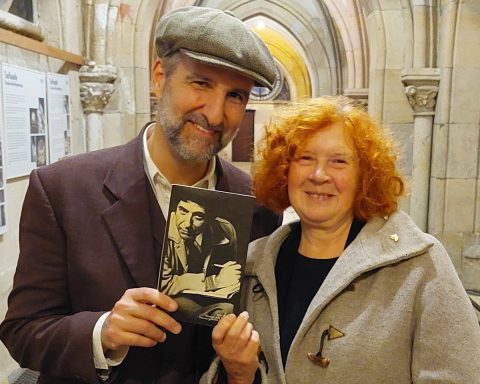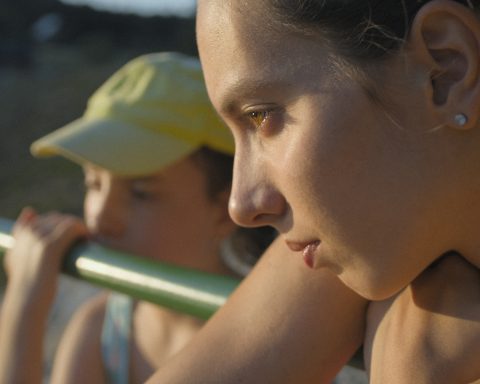On opening night, Mario Schröder’s new production of Swan Lake got a well deserved standing ovation. He takes tradition and turns it on its head.
The tension between what is expected of us and what we can deliver whilst remaining true to ourselves is very much a reflection of our times.
It’s every dancer’s dream to dance the lead in Swan Lake. It’s a physical challenge, especially the part where you have to do 32 fouettes (a fast whipping turn on one foot) in a row. The role goes at the top of every CV and is the climax of every reel. With a legacy like that, is it a sin to modernise it?
It’s hard to believe that when Swan Lake premiered in Moscow 1877, it was not well received.
It was too modern for the time. Critics said that Tchaikovsky’s music was “too noisy, too Wagnerian and too symphonic.” Also, they called the choreography by Julius Reisinger “unimaginative and altogether unmemorable.”
So, basically, a lot of noisy meh.
At the time, there was specialist music for ballet. It was light and decorative. At first Tchaikovsky thought it vapid and valueless. Then, in preparation for a new commission from Begichev, he began to study the works of the Italian Cesare Pugni and the Austrian Ludwig Minkus.
He was dazzled by the array of engagingly charming combinations. Inspired, he completed Swan Lake in a little over a year. This was possible through revising and incorporating some previously written pieces.
Of course Tchaikovsky put his own spin on the music.
He and Reisinger had sketched out the basic requirements in advance. However, when the score was delivered, Reisinger deemed several pieces undanceable. Tchaikovsky refused to remove them. This was definitely a diva moment. Prior to this, the dancers were the divas. Now, they were in danger of the music becoming all too noticeable.

The original staging of Swan Lake had 41 performances over six years, and then kind of petered out. Talks were in progress to revive the piece when Tchaikovsky died in 1893. This no doubt was a catalyst in realising the project in 1895. At this time, Italian composer Drigo updated the score. This is the version most use today.
After the premiere of Mario Schröder’s Swan Lake, I talked to a Russian girl.
She didn’t understand why Germans have to revise Russian classics. She thought Tchaikovsky would have been appalled, or at least she was appalled in his absence. She added that it was especially inappropriate because he was gay.
I found this interesting because, during the break, I had talked to Italian choreographer Alessio Trevisani, who was excited about the work, seeing it as a lesbian homage.
I asked myself what Tchaikovsky would think in 2018. Of course, there is no way to know for sure. In his time, he had to stay in the closet. To this day there are still more than 70 countries where it is illegal to be homosexual, several of which carry the penalty of death.
In 2013, the Russian Cultural Minister denied Tchaikovsky’s homosexuality. There may no longer be a law prohibiting LBGTQ in Russia, but there are also no laws protecting them. Gay bashing is not uncommon, and homosexuality was classed as a mental illness until 1999.
Clearly, not everyone feels all things should be political.
Recently there was a comment on our Facebook wall when we shared a BBC video about the recent Eurovision Song Contest winner, “Toy” (written about the #MeToo movement).
It read: “Congratulation #Europe Artists and musicians for chicken Song winner ![]() 😂
😂![]() 😂
😂![]() 😂. So undeserved winner
😂. So undeserved winner![]() 👎
👎![]() 👎 Political-cashvision. RIDICULOUS!!!!!!!! Worst “song” ever
👎 Political-cashvision. RIDICULOUS!!!!!!!! Worst “song” ever![]() 👎, there were many better.”
👎, there were many better.”
Based on Tchaikovsky’s update on the typical music composed for ballets of his time, I’d say he was in the “modernise it” camp. I would also like to think he’d have been much more likely to have escaped his depression were he able to live his life out in the open. I wonder if he’d be happy with the Eurovision winner. Perhaps he’d have even thrown a very festive Eurovision party… or not. Maybe that’s taking his new found appreciation for dance music too far.
Now, let’s take a look at what Schröder has so eloquently done with Swan Lake.
If you are gay, you can see it as a gay anthem. If you are a woman, you can see it as a snub to patriarchy. If you are an artist, you can see it as an artistic expression. If you are a POC (“person of color”), you can see it as challenging white privilege. If you are a teen, you can see it as fighting against the parental units. If you are oppressed by those in power, you can see it as a voice for the people.
It doesn’t matter who you are and who they are. This is the beauty of Mario Schröder’s Swan Lake. It does not judge or slap you in the face. It talks of the struggle to be who you are in the environment in which you find yourself. And it empowers by giving you the power of interpretation.
It does this without losing sight of the original Swan Lake. What you may see as a diversion to tradition is that the swans are expertly danced by the elegant Anna Jo and the explosive Laura Costa Chaud. Yes, two people rather than one, dancing two sides of one character.

It is thought that the original version had two dancers. I love that he did this. It speaks to the fact that we are not fighting some evil within ourselves. We are fighting the evil that is outside ourselves.
Regardless of how we are raised, we are who we are. We have the right to evolve, be it good or bad. We are multi-dimensional human beings with desires that can change depending on our circumstances. As long as it’s safe, sane and consensual, there is nothing that needs to be conversion therapied out of us.
Another area that hearkens to the original can be found in the history of ballet. In this period, choreography was based on the abilities of the dancers. The original swan, Anna Sobeshchanskaya, really didn’t like the choreography, and a new pas de deux was choreographed to another composer’s music. Time for another Tchaikovsky diva moment, and rightly so! He said he, and he alone, was responsible for the music. Drama, drama, drama.
In today’s ballet world, dancers are the medium through which choreographers express themselves. A good choreographer does pay attention to the properties of their medium. Mario Schröder is one such example.
In his Swan Lake, the prince is now a princess (and lead character), in a choreographic work that seems like it was custom made for Urania Lobo Garcia. From what I’ve seen since I’ve been covering the Leipzig Ballet, she is the best dancer to convey all the emotions and styles of dance needed to show the complicated nature of the princess in her gilded cage. Simply superb!
One part of the performance disturbed me.
And I hope it disturbed the entire audience. At one point, the princess’s parents bring her suitors in an effort to marry her off into society. They are horrible stereotypical portrayals of Russians (gold dresses, vodka), Spaniards and Italians. At first, I couldn’t see past my emotional response. I was huffing and puffing. But it made me think and I saw that it wasn’t a statement in support of these stereotypes, but one exposing them.
In a city where the AFD got way too many votes, we need to be able to look at people as individuals. Again, en pointe for the overall message of the performance and our times.
An important character is that of gender bending Benno, perfectly danced by Lou Thabart.
This character sticks by the princess no matter what. He is her teacher, confidante and deliverer. Her parents despise him, and she is not quite sure what to do with her feelings for him. She loves and loathes him. He helps her find her inner being, even though that being goes against everything she has been brought up to believe in.

And then there’s the set! OMG!
A word of caution: skip the cheap seats in the balcony and pay to be on the main floor. I saw it from both perspectives. It’s pretty from above, but you miss the choreography. The principal dancers and the rest of Leipzig Ballet do this so well, that you need to see every minute of it! And the set is a totally different set from downstairs. It is incredibly well done.
They are swans on a lake. What could be more appropriate than sychronised swimming? Thank you for having the courage to do something so beautiful and quirky. I don’t want to give too much away… but the swan tails. And and and.
Just go! You can see it over and over again and find new moments each time.
It’s pretty and it’s dark, and, most of all, it’s real. And yes, there are moments where Tchaikovsky gets to diva (especially for the ending).
Thank you, Mario Schröder, for holding a mirror up to our times and allowing us to see ourselves with a touch of humour. And most of all, thank you for allowing us to come to our own conclusions.
https://www.youtube.com/watch?v=AaGIGJZ7kb8
Mario Schröder’s
Swan Lake
Choreography: Mario Schröder
Set and video: Paul Zoller
Costume: Aleksandar Nashpal
Dramaturgy: Thilo Reinhardt
and Christian Geltinger
Conductor: Giedre Siekyte
Princess: Urania Lobo Garcia
White Swan: Anna Jo
Black Swan: Laura Costa Chaud
Benno: Lou Thabart
Mother: Fang Yi Liu
Stepfather: Marcos Vinicius da Silva
Performances:
25 & 26 May
02, 03, 14 & 19 June
15, 16, 23 & 3 Sept
13 & 1 Dec
Cover shot: Swan Lake Premiere 06.05.2018 // Urania Lobo Garcia. Photo © Ida Zenna, courtesy of Oper Leipzig.

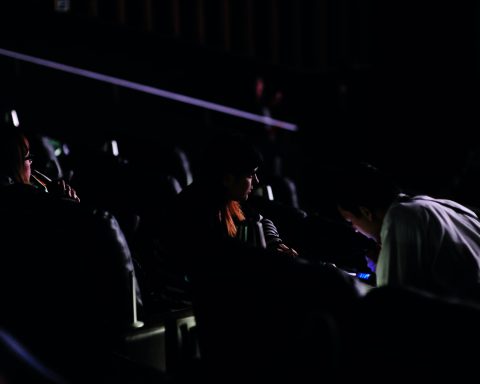
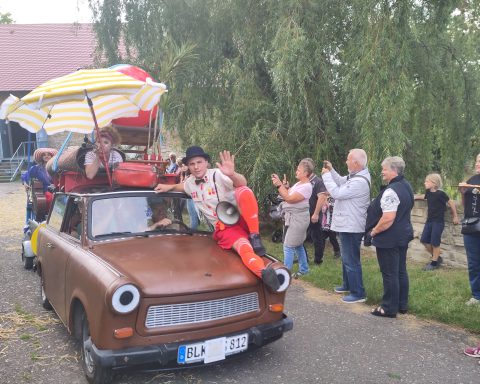


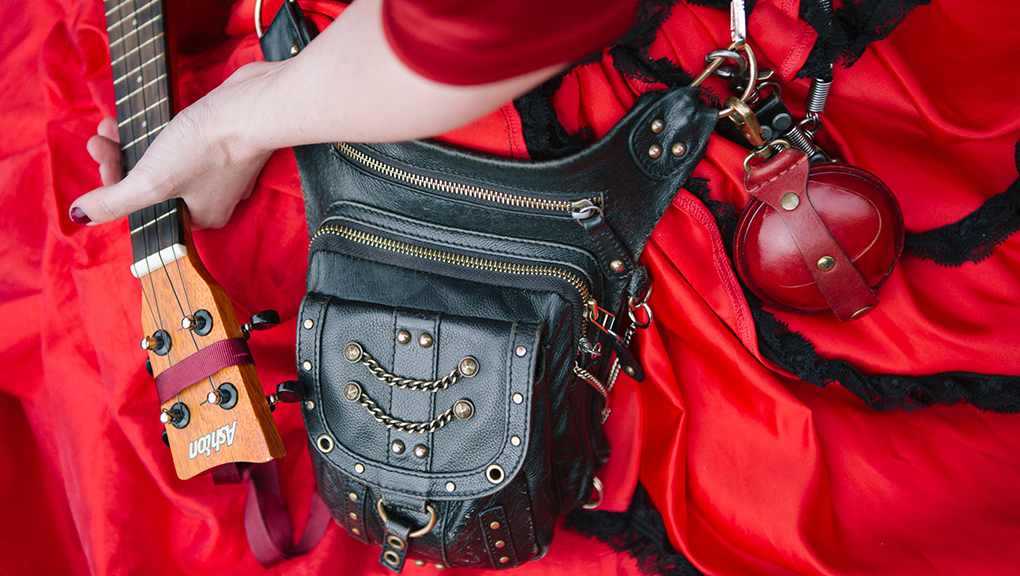


![Wine & Paint event on 9 Nov. 2024 at Felix Restaurant, Leipzig. Photo: Florian Reime (@reime.visuals] / Wine & Paint Leipzig](https://leipglo.com/wp-content/uploads/2024/12/pixelcut-export-e1733056018933-480x384.jpeg)
